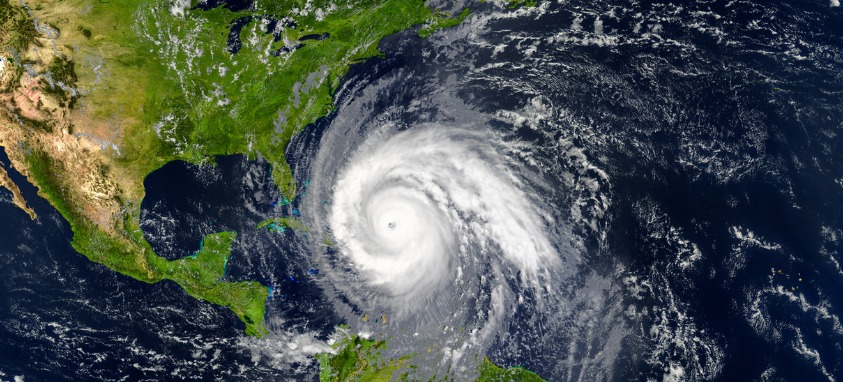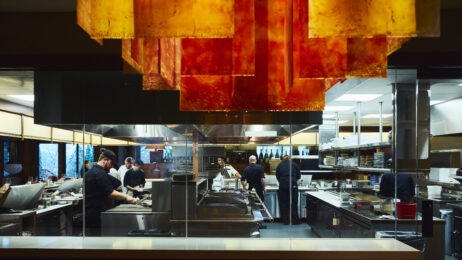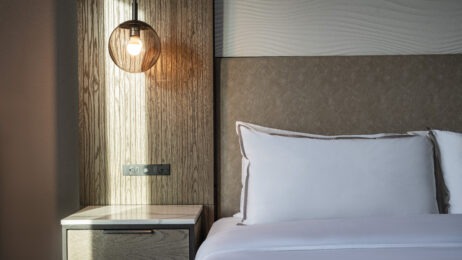When Hurricane Ida was headed for the East Coast, Marriott International’s Global Security Team swept into action, evacuating and securing properties in coordination with local emergency authorities based on plans that have been developed over years of experience with emergency situations—and updated as new realities arise.
“Hotels have storm preparation plans and protocols for severe weather in place, and our staff is well trained to implement these plans,” said Hector Mastrapa, senior vice president of risk management with Marriott. “We develop our plans in coordination with local authorities, and we take guidance and direction from them as situations warrant. The safety and security of our guests and employees is always a top priority.”
See also: Planners Urged to Step Up Disaster Preparedness
A Holistic Approach
Marriott’s emergency response plans start before a threat is identified and go beyond initial response efforts. “We start by being proactive. We work to identify and understand risk,” said Mastrapa at a presentation at Marriott’s The Exchange customer event at Walt Disney World Swan and Dolphin resorts in August.
One of the newest entries to the risk response list is the company’s Covid-response plan. Marriott’s Commitment to Clean meeting and event protocols built on the cleanliness and service standards already in place. Changes include enhanced sanitation guidelines, new operational training for associates, and increased use of technology to ensure that customers are able to come together and connect with confidence.
Marriott requires consistent standards for everything from fire to building codes over and above what may be required by local authorities in some parts of the world. The Safety Security and Design Group is tasked with incorporating mitigation measures into architecture of hotels (think engineering ballasts and anti-blast measures).
Staff are trained on everything from de-escalating interactions to spotting and reporting warning signs for human trafficking, something that is more difficult when staff is not going into rooms daily and interacting with guests as much.
An intelligence group of largely ex-intelligence officers is deployed in Singapore, Dubai and the U.S. to receive, interpret and understand what is happening all over the world and recommend appropriate responses.
The team operates on a four-tier crisis protocol, ranging from a local, elevated virus situation to a statewide hurricane threat. For an elevated threat, such as the unrest surrounding the 2020 election certification protests and inauguration in Washington, D.C., additional resources are deployed to address activities that could happen right outside the hotel’s doors.
“When you have 7,400 hotels with open doors 24-hours a day, operating in 135 countries, something is always happening,” said Mastrapa.
Marriott International also has its own claims organization to streamline insurance coverage and processing. “We want to make the experience friendly and reflective of Marriott culture,” said Mastrapa. “People are paying to stay at a hotel. They want value, service and security,” he concluded.
Pro Tips for Keeping Yourself and Attendees Safe
While hotel staff are focused on keeping everyone safe, there are small steps you and your guests can take to be better prepared if an emergency occurs. As Mastrapa puts it, “Security measures are always too much until the day they are not enough.”
- Request a room between the second and sixth floor. These lower floors are more accessible from a ladder and require fewer stairs down in case of fire.
- Count the number of doors to the exit, so if there is a fire and you are crawling out, you can count your way to safety.
- When you enter your guest room, check to ensure your cell phone and room phone are working.
- Check that there are no adjoining doors open.
- Carry a rubber doorstop; if find yourself in a mass shooting incident, it could save your life.
- Carry a small, high-lumen flashlight; if the power goes out or you are walking at night, you can flash it in an accoster’s eyes and move away.
- You and your brain are your most important asset; stay calm, practice 180-degree span awareness of your surroundings and don’t just focus on the phone in your hand.
- Make a paper copy of your identification, address, phone number of the hotel where you are staying, emergency contact and list of allergies and keep it on your person; if you are mugged and your phone is stolen, someone could help you get help.
- Call the hotel before you arrive to ask if there are any strikes or rallies nearby that may impact the visit.




